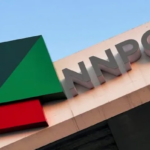
D- 8 Ministerial Meeting on Industrial Cooperation opens in Abuja tomorrow Tuesday, November 14. It is the first time Nigeria hosts this ministerial meeting underscoring the increasing seriousness of Nigeria to industrial cooperation in a globalized world.
Interestingly, D-8 is a global initiative with membership in Asia, Europe (assuming Turkey is in Europe, not in EU) and Africa. It is said to be an Organisation for Economic Cooperation with “…no adverse impact on bilateral or multilateral commitments of the member countries, emanating from their membership to other international or regional organisation.”
D-8 also known as “Developing 8” is an organisation for development cooperation among eight countries namely: Bangladesh, Egypt, Indonesia, Iran, Malaysia, Nigeria, Pakistan and Turkey. The establishment of D-8 was announced through the Istanbul Declaration of the summit of Heads of State/Government in 15 June 1997, making it a two decade long global initiative.
The “objectives of the D-8 Organisation for Economic Cooperation are to improve member states’ position in the global economy, diversify and create opportunities in trade relations, enhance participation in decision making at international level, and improve the standard of living.”
The Abuja meeting assumes a special importance. For one, it is taking place almost a month after the celebrated ninth Summit of the Developing 8 (D-8) in Istanbul, Turkey on Friday, October 20, 2017 attended by President Muhammadu Buhari. Secondly the ministerial meeting takes place a week before the 2017 Africa Industrialization Day (AID) with the theme; AFRICA INDUSTRIAL DEVELOPMENT; A PRECONDITION FOR AN EFFECTIVE AND SUSTAINABLE CONTINENTAL FREE TRADE AREA (CFTA).
Interestingly, Nigeria is the only African country in D-8. The Tuesday summit signifies the renewed activism of the Federal Ministry of Trade and Investment under Ministers Okechukwu Enelama and Hadjia Aisha Abubakar. D-8 holds technical meetings to address specific sectors as follows: Agriculture and food security, Industry, Finance, Visa implementation, Health, Science and Technology, Tourism, Trade and Transportation. Under each of these are task forces for specific industries. In this regard, the task forces are for the following industries: Automotive, Cement, Electronic and ICT, Energy, Food Industry, Iron and Steel, Ceramics, Machinery, Petrochemical, SMEs, Standardisation and Accreditation, Technology Cooperation, Textile and Metrology. All these tasks force are expected to meet in Abuja.
How prepared is Nigeria for this critical engagement? Undoubtedly, on all the sectors, Nigeria lacks behind the other countries especially critical players like Turkey and Malaysia. Will Abuja ministerial meeting propel Nigeria towards the promised diversification and beneficiation of its abundant raw materials through investment and local value addition, sustainable employment or deepen our dependency further through dumping of finished goods, mass unemployment and poverty?
Of course the choice is ours depending on our level of engagement and economic patriotism (assuming there is such left.) Happily, Nigeria’s 1999 constitution underscores the state principles that favor self-reliance, local value addition and public welfare and security. Nigeria has also recently launched the Economic Growth and recovery Plan (ERGP) as a template for national economic growth. With all its limitations in terms of absence of enduring vision, ERGP is still very handy for engagement in D8.
Much more relevant here is even the National industrial Revolution Plan of 20140 and Cotton, Garment and Textile policy, CTG? Of special importance to Nigeria would be the CTG. President Buhari campaigned on reviving textile and garment industries which had collapsed in hundreds throughout the country with attendant mass job losses. Mr. Gökçe ÇAKAR, Turkey Focal Point (Task Force on Textile and Garments), Directorate General for Industry, Ministry of Science, Industry and Technology, Republic of Turkey chairs the Task Force on Textile. Turkey has comparative advantage over Nigeria in textile production. So also Bangladesh. The 5th D-8 Ministerial Meeting on Industry & The 9th Session of D-8 Workıng Group on Industrial Cooperatıon held on 09-11 May 2016 in Cairo had resolved to: Make cotton based production chain between D-8 countries duty free quota free market within D-8 countries and it would be examined to get benefit of low cost quality garments products; Facilitate investments in D-8 countries having raw materials and high market opportunities especially in developing industrial parks for textile & garments; and facilitate investments particularly on manufacturing of dying- finishing machinery, spare parts and accessories for textile among others.
The critical question is what are the implications of these resolutions for textile and garment revival in Nigeria? There was once a Nigeria in which Cotton, Textile and Garment industry was a strategic non-oil sector employing direct jobs of almost 1 million workers. It was once a basic industry driven by abundant cotton and polyester base. But today the industry has nosedived employing as low as 24,000 people in just 25 textile and garment factories in the organized sector. The industry is far from being competitive, no thanks to dumping and smuggling including from D-8 members like Turkey and Malaysia. The most notorious problem is high cost of production.
The Abuja meeting must be conscious of this reality such that through D-8 we rather promote development not to further deepen de-industrialization and perpetual factories’ closures. Decisions for direct industrial investments by most foreign countries are driven by a number of criteria like access to markets, access to raw materials/supply chains, logistics, taxes, subsidies, and in recent times advantages related to labour costs, which means low wages, long working hours, poor labour legislation and violation of trade union rights. Is D-8 different? Are member countries in unnecessary competition against with each other to have a share in the global supply chains or to foster genuine cooperation for development?
Apart from cement sector, it is not clear in which sector Nigeria can truly compete with any D-8 members. Whatever the case is Abuja meeting offers opportunities for Nigeria to overcome its challenges of diversification and beneficiation.




